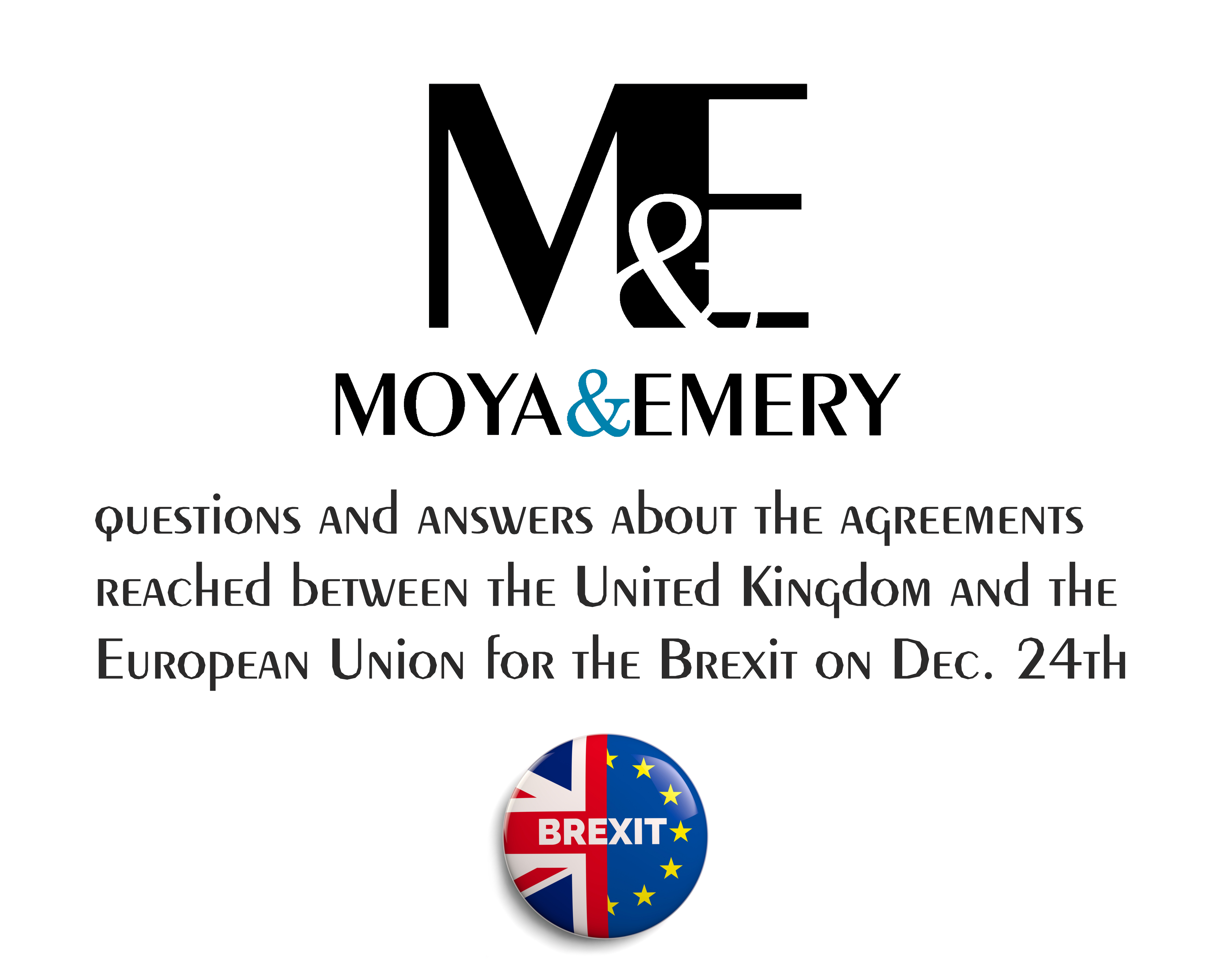What changes on 1 January 2021?
By leaving the EU, the UK has chosen to put an end to the free movement of persons between the EU and the UK as of 1 January 2021.
All movements after 1 January 2021 will be subject to the EU’s and UK’s existing immigration legislation applicable to all third country nationals.
Those who were or had been already in a cross-border situation between the EU and the UK before 1 January 2021 are covered under the Withdrawal Agreement, which allows for their continued right to remain, ensures non-discrimination and protects their social security rights.
SOCIAL SECURITY COORDINATION AND VISAS FOR SHORT-TERM VISITS
What changes on 1 January 2021?
By leaving the EU, the UK has chosen to put an end to the free movement of persons between the EU and the UK as of 1 January 2021.
All movements after 1 January 2021 will be subject to the EU’s and UK’s existing immigration legislation applicable to all third country nationals.
Those who were or had been already in a cross-border situation between the EU and the UK before 1 January 2021 are covered under the Withdrawal Agreement, which allows for their continued right to remain, ensures non-discrimination and protects their social security rights.
What is covered by the draft Trade and Cooperation Agreement?
The UK refused to include a chapter on mobility in the Agreement, or any provision aimed at facilitating short-term visits or long-term stays. The only exception relates to the temporary movement of natural persons for business purposes, or mode 4, as defined in the chapter on Trade in Services of this document). As a result, the Agreement does not cover the right to enter (with or without visa), work, reside or stay of EU citizens in the UK or of UK nationals in the EU.
The Agreement nevertheless contains a number of social security coordination measures aimed at protecting the entitlements of EU citizens temporarily staying in, moving to or working in the UK and of UK nationals temporarily staying in, moving to or working in the EU after 1 January 2021.
Does this mean that visas will be necessary for all travel between the EU and the UK?
No. The EU had already taken the decision to allow UK nationals short-term visa-free visits of up to 90 days within any 180-day period, as of 1 January 2021. The UK has also decided to allow visa-free short-term visits for EU citizens.
The EU decision is conditional on the UK continuing to provide for equal visa-free travel for short-term visits for EU citizens of all EU Member States, without discrimination between EU nationals.
Should the UK introduce a visa requirement for nationals of at least one Member State, the EU’s reciprocity mechanism (Article 7 of Regulation (EU) 2018/1806) will be applied without delay, meaning that a series of gradually increasing measures are taken, which could lead to suspending the visa-free status of the UK, in case the UK, after consultations does not drop the visa requirement.
Can the UK discriminate between EU citizens in the context of short-term travel or social security?
Whilst the EU and the UK are free to determine their respective visa policies, the UK must treat all nationals of EU Member States equally; it cannot decide to grant a visa waiver for short-term travel to citizens of certain Member States, whilst excluding others.
This principle of non-discrimination between EU citizens is also applicable in other areas of the agreement which are directly relevant to citizens, such as in relation to temporary stays for business purposes, Social Security Coordination, or participation in Union Programmes.
What about long-term stays?
UK nationals intending to stay in an EU Member State for periods exceeding 90 days for any purpose (e.g. work, research, study, training) will be able to do so under the conditions for entry and stay for third country nationals set under EU law and the national laws of the Member States.
EU citizens intending to move to the UK will need to comply with the applicable immigration conditions set by the UK government.
Who is covered by provisions on social security coordination?
The Agreement covers EU citizens, UK and third-country nationals, stateless persons and refugees, in a cross-border situation as of 1 January 2021, legally residing in the EU or the UK, and whose situation is not confined to a single country from a social security perspective. It also covers their family members and survivors.
What exactly will be covered under the coordination of social security systems?
The Agreement ensures that social security benefits are coordinated. It also ensures that only one set of rules applies to a person at any given time. This will avoid the risk that such a person would pay double social security contributions or that no legislation applies to them at a given moment and are therefore left without social security protection.
The draft Agreement provides wide protection to EU and UK citizens. The majority of social security benefits will be coordinated and protected between the EU and the UK, so that citizens preserve their rights if, for example:
- they are or will be in a cross-border situation and work or will work in more than one country, one of them being the UK as from 1 January 2021;
- they reside in one Party and work in another;
- they move residence to the other Party; or
- they travel between the EU and the UK for a temporary stay.
More specifically, such a person will not lose their right to old-age and survivors’ pensions, death grants, pre-retirement benefits, or maternity/paternity benefits related to the birth of a child in the other Party.
Accidents at work will also be coordinated so that a person working outside the State of insurance may be treated in the State of work where the accident happened. If they move to the other Party, they may continue to receive their cash benefits there as well.
What won’t be covered?
The Agreement foresees equal treatment of EU citizens with UK nationals and vice versa for the purpose of social security contributions and benefits.
However, there are some exceptions. For example, certain benefits are not included in the Agreement and that means that access to such benefits will be left for domestic legislation which may then choose to treat the concerned persons differently.
Such benefits include family benefits, long-term care, special non-contributory benefits or assisted conception services.
What happens to periods worked both in the EU and in the UK when it comes to people’s benefits?
A person will not lose the periods worked in the EU and in the UK, which will be taken into consideration when their benefits will be determined and calculated (e.g. unemployment benefits, old-age and survivors’ pensions).
Periods worked in the UK and the EU will also be taken into account when determining a person’s entitlement to invalidity benefits.
What provisions are there for healthcare?
Healthcare is included in the scope of the Agreement and the current arrangements will, in principle, continue to apply.
For example, an EU citizen on a temporary stay in the UK (a tourist, student, or business person) will continue to benefit from necessary (such as emergency) healthcare based on the European Healthcare Insurance Card.
However, for longer stays, domestic immigration legislation may provide for additional requirements. In particular, the UK imposes on third-country nationals for the time being a healthcare surcharge as a condition for issuing an entry visa for stays longer than 6 months. This surcharge will have to be paid by EU citizens as well, but will be reimbursed for students and persons who remain insured in their Member State (Portable Document S1 holders as explained below).
Pensioners will continue to benefit from healthcare in their State of residence on behalf of the State paying their pension if they move to the UK or the EU. The same goes for frontier workers, working in one Party and residing in another. While additional requirements may apply under domestic immigration legislation, the Agreement secures that the country of insurance reimburses the country of residence, so that ultimately the same arrangements apply as now.
What about posted workers?
The posting of workers is part of the free movement of services within the EU, subject to conditions. The Agreement does not include rules for the posting of UK workers in the EU, or vice-versa. This means that, for example, a worker sent by the UK to the EU to work will have to pay social security contributions in the EU Member State and will be subject to the legislation of that country.
It was however agreed that in this area, and as a transitional provision, Member States may request, upon notification to the Commission, to continue the posting system as it exists now for a period of up to 15 years. Member States can terminate the posting system earlier. During this period of time, posted workers will then pay their social security contributions in the Party that sent them (i.e. the UK in the example provided).



